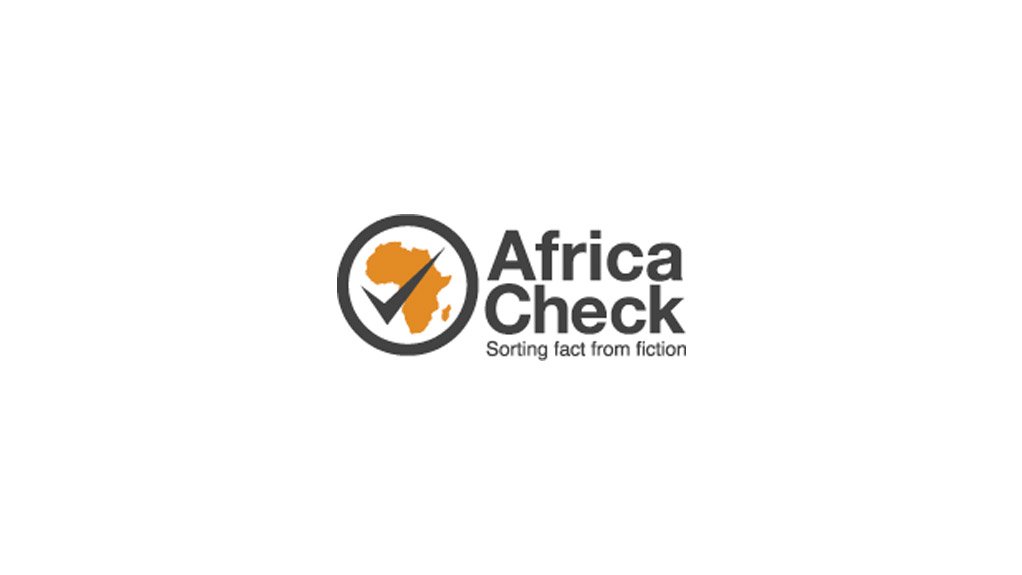Liberians head to the polls on 10 October 2023.
In a nearly four-hour special interview broadcast widely on radio and Facebook in June 2023, finance minister Samuel Tweah Jr painted a rosy picture of Weah's record in the fight against poverty.
We selected three claims to fact-check.
Weah was sworn in as Liberia’s president in January 2018.
As evidence for his claim (made at the 09:01 minute timestamp in this video), the minister referred the audience to “the latest World Bank report titled Investing in Human Capital, page 20”.
We found the report in question. Dated June 2022, it is titled Investing in Human Capital for Inclusive and Sustainable Growth.
On page 20, there’s a graph with the headline: “Trend in Real GDP per capita and Poverty, 2014–24.”
To estimate Liberia’s poverty rate, or the number of people considered extremely poor or unable to meet most of their basic needs, the report used the international poverty line of US$1.90 in 2011 purchasing power parity (PPP) dollars. PPP is a currency unit that allows international comparisons.
The report showed that the poverty rate in the country in 2017 was 46.7%. This equalled 2,240,027 people out of a population of 4 796 631 in that year.
The development lender told Africa Check that the latest available data on Liberia was from the 2016 household income and expenditure survey. The data in the June 2022 report were estimates by World Bank staff.
World Bank spokesperson Michael Nyumah Sahr said the next survey was planned for 2024 and would be conducted over a year. The results “are expected in 2025”, he said.
Sahr also shared a link to an interactive dashboard, which showed that 2.09-million Liberians were living in poverty in 2016.
Therefore, the minister's claim that there were two-million people living in poverty in 2018 is supported by the available data.
In September 2022, months after the release of the report in question, the bank raised the international poverty line to $2.15 per person per day. This is measured in 2017 PPP dollars.
Tweah Jr said poverty had been increasing for at least three or four years under the previous government.
Weah succeeded Ellen Johnson Sirleaf, who had been in office since 2006.
“When you see the graph, you will see poverty going up, so the president inherited a country when poverty was increasing,” the minister said.
The poverty rate rose from 41.7% in 2014 to 46.7% in 2017, according to the World Bank graph cited by the minister.
The dashboard shared with Africa Check also shows increasing poverty between 2014 and 2016.
The claim is correct.
Earlier in the interview (at the 10:41 minute timestamp), the minister claimed that according to the World Bank report, “in the first year of his [Weah’s] presidency, 27-million Liberians came out of poverty”.
The radio presenters pointed out to the minister that Liberia had a population smaller than 27-million. The minister then said he was referring to “27 000” as the number of people lifted out of poverty.
In the 24th minute, he made a similar claim that the government had pulled 24 000 people out of poverty between 2018 and 2017.
We checked the numbers using the World Bank data.
The data shows that 44 690 people were lifted out of poverty between 2017 and 2018, with the poverty rate falling from 46.7% to 44.9%. So the minister missed an opportunity to claim a better record.
But in 2019 and 2020 the poverty rate increased, pushing more people into poverty. The estimate for 2022 is 49.4%, down slightly from 50.6% in 2021, but an increase of more than four percentage points since the president took office.
In absolute terms, Weah found 2.24-million people living in poverty, and he is leaving 2.62-million – using the lower line of $1.90 per person per day.
The finance minister chose only the year with a positive story, and got the figures wrong, but left out the full picture of Weah's tenure in terms of poverty numbers.
We therefore rate this claim as misleading. (Read our overview of how we rate claims here.)
This report was written by Aria Deemie, a fact-checker and social media coordinator with Local Voices Liberia, during the 2023 Africa Check Fellowship in Nairobi, Kenya. The fellowship was sponsored by the US Department of State.
This report was written by Africa Check., a non-partisan fact-checking organisation. View the original piece on their website.











